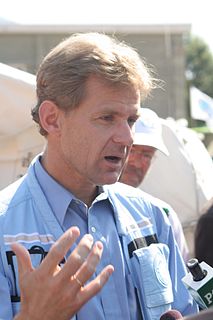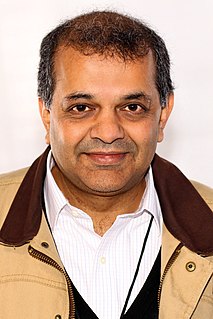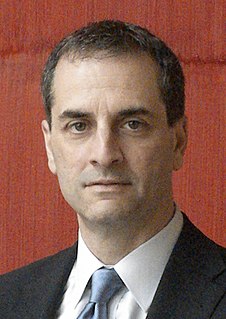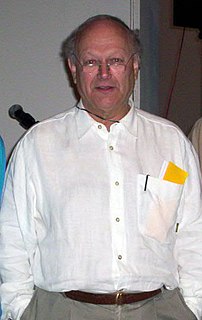A Quote by Jhumpa Lahiri
On the screen I saw tanks rolling through dusty streets, and fallen buildings, and forests of unfamiliar trees into which East Pakistani refugees had fled, seeking safety over the Indian border.
Related Quotes
The trees bathed their great heads in the waves of the morning, while their roots were planted deep in gloom; save where on the borders of the sunshine broke against their stems, or swept in long streams through their avenues, washing with brighter hue all the leaves over which it flowed; revealing the rich brown of the dacayed leaves and fallen pine-cones, and the delicate greens of the long grasses and tiny forests of moss that covered the channel over which it passed in the motionless rivers of light.
There have always been elements in the Pakistani state that have been hostile to India; which is not to say that the Pakistani government as a whole is responsible for bombing Indian cities. But I think there are entities in the Pakistani security services that operate more or less autonomously. Their role certainly needs looking into.
I took over a city that had two riots in four years and I had none. And they knew they couldn't riot on me. And when I saw the people on the street in New York City, I said to myself, you're breaking Giuliani's rules. You don't take my streets. You can have my sidewalks, but you don't take my streets, because ambulances have to get through there, fire trucks have to get through there.
If you look at the movement of refugees, in Vladimir Lenin's phrase, "the people who voted with their feet," the movement of refugees until comparatively modern times was overwhelmingly from West to East, not from East to West. Refugees of all kinds were constantly fleeing from Christendom to the Islamic lands. Jews of course and Muslims of course, but even some Christians and the movement of refugees went overwhelmingly that way.
And yet, over the years I've met so many people like Jared who seem to be more at home, happier, living in a country on of their birth. ... Not political refugees, escaping a repressing regime, nor economic refugees, crossing a border in search of a better-paying job. The are hedonic refugees, moving to a new land, a new culture, because they are happier there. Usually hedonic refugees have an ephiphany, a moment of great clarity when they realize, beyond a doubt, that they were born in the wrong country.
In Moscow, dim and green under the summer rain, columns of armour were waiting in the side-roads off the long avenue from Vnukovo airport. Tanks from the Taman Division stood beneath the dripping trees around Moscow University with their field kitchens and command trucks. This was not a new sight to me: the Soviet tanks had rested like that beneath the trees of the parks in Prague, late in another August twenty-three years before. Now they had invaded and crushed one more country -- their own.
As I followed Margo's directions through the maze of one-way streets, we saw a few people sleeping on the sidewalk or sitting on benches, but nobody was moving. Margo rolled down the window, and I felt the thick air blow across my face, warmer than night ought to be. I glanced over and saw strands of her hair blowing all around her face. Even though I could see her there, I felt entirely alone among these big and empty buildings, like I'd survived the apocalypse and the world had been given to me, this whole and amazing and endless world, mine for the exploring.
I'm very interested in buildings that adapt to changes in climatic conditions according to the seasons, buildings capable of responding to our physical and psychological needs in the way that clothing does. We don't turn on the air-conditioning as we walk through the streets in high summer. Instead, we change the character of the clothing by which we are protected. Layering and changeability: this is the key.
I had an Indian face, but I never saw it as Indian, in part because in America the Indian was dead. The Indian had been killed in cowboy movies, or was playing bingo in Oklahoma. Also, in my middle-class Mexican family indio was a bad word, one my parents shy away from to this day. That's one of the reasons, of course, why I always insist, in my bratty way, on saying, Soy indio! - "I am an Indian!"


































